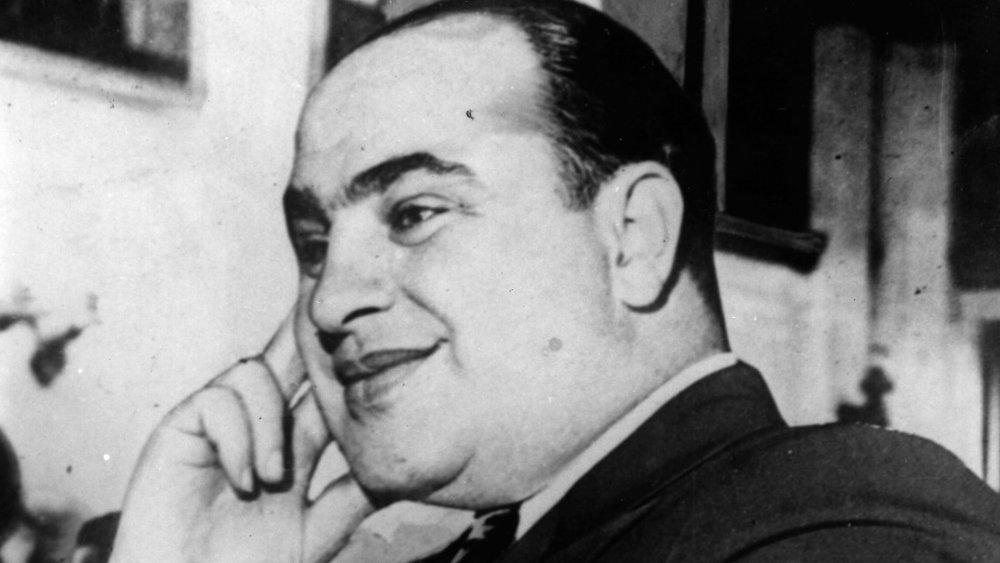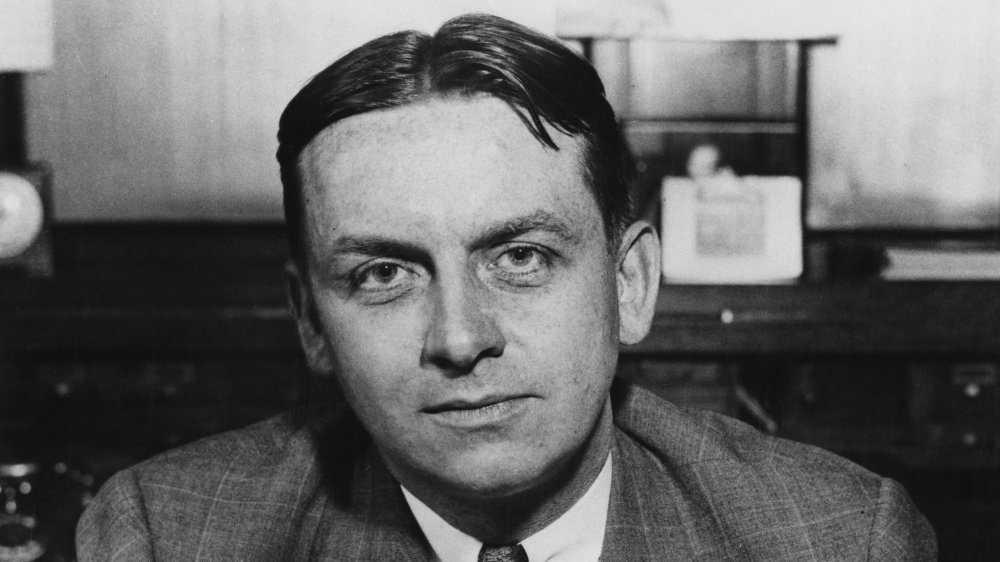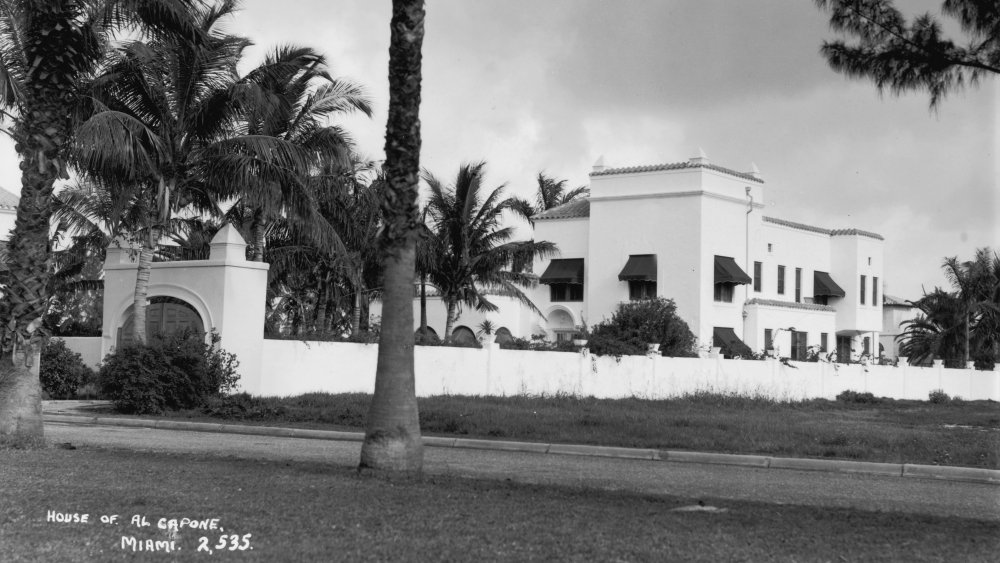What Happened To Al Capone's Money After He Died?
Worthy, dedicated souls have been known to opine, "There's no such thing as a bad boy." The joke then becomes, "But you've never met..." In this case, Alphonse Gabriel Capone, born in New York City in 1899, one of nine children, and by 14 a school dropout because he punched a female teacher in the face. According to Biography, Capone worked briefly as a bookkeeper — irony alert — but mostly dedicated his life to separating people from their money, with legality being a minor detail. At the height of his power and influence in Chicago during the Roaring Twenties, he's generally considered the top dog for bootlegging during the Prohibition era — America was thirsty, no doubt about it — as well as prostitution and this and that and the other illegal, violent thing. (More irony: One of his brothers changed his name and became a Prohibition agent in Nebraska.) Fierce competitor, or loving husband? He married at 19 and stayed married until his death did them part, but he's also credited with punishing disloyalty by using a baseball bat to kill two colleagues he thought had betrayed him. To his credit, he bought them dinner first.
Ness was untouchable; Capone, not so much
Although Eliot Ness of The Untouchables fame put a significant dent in Capone's bootlegging business, it was actually accountants who brought down Scarface (a nickname Capone hated) and sent him to prison in 1932. He ended up serving time in Alcatraz, but was released early for — wait for it — good behavior. There must have been a bunch of money waiting for him when he got out, right? Not so much. One of Capone's tactics was to deal in untraceable cash, but buying an estate near Miami, Florida, in 1928 helped prove a significant source of income. He still owned the place when he got out, but he was also suffering from tertiary syphilis. The long-time condition — his son was born with it — had been treated while he was in prison, including the use of mercury. It didn't work. He returned to Florida to live out his last days, with significant cognitive impairment. Not penniless, but when he finally died of complications from a stroke and a heart attack in 1947 people naturally asked, "Where's the money?" And nobody knows.
Land: it's the one thing they aren't making any more of
His great niece, Deirdre Capone, is his last living blood relative. According to an article in England's The Sun, it's her theory that Great Uncle Al, who she said loved to tell her knock-knock jokes (you can probably make up some of your own right now) and dress up as Santa (presumably at Christmastime, but the disease was eating his brain, so...) hid his money in various places in the United States, Canada, and Cuba, in safe deposit boxes ("I remember seeing keys," she says) under assumed names. By the time he was released (here's that brain thing again) he couldn't remember the hiding spots. She estimates it comes to around $100 million. Has she found any of it yet? Well, not really. "I don't have the wherewithal" to go after it, she said. It's not as if Great Uncle Al left a will, either. "Was Al Capone a mobster? Yes, he was," she says. "But was he a monster? No he was not." Maybe just misunderstood. Certainly a baseball fan.


